2024 Fellowship Profile: Rick Dunn (ABJ ’93)
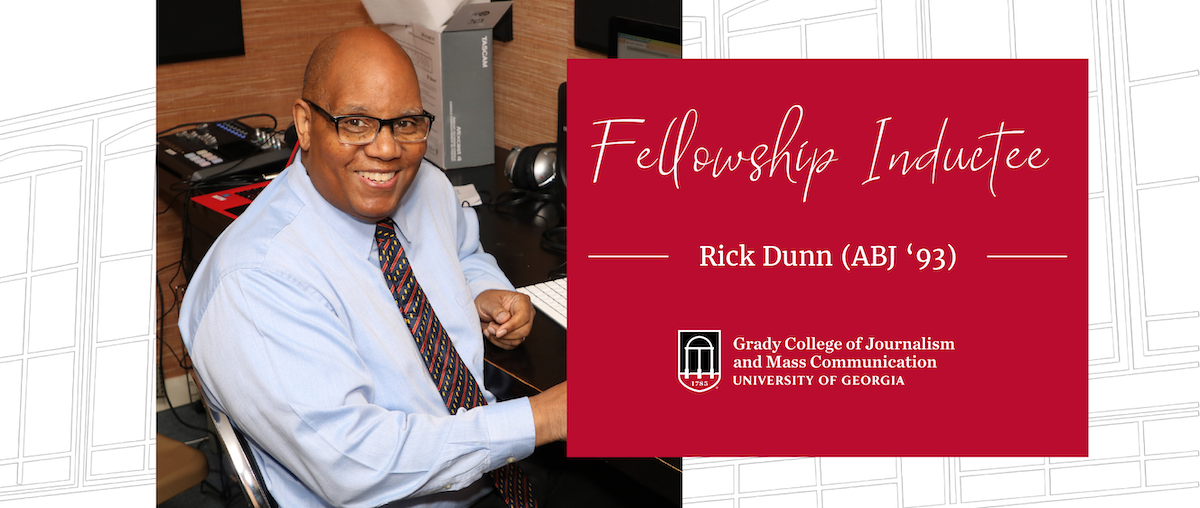
2024 Fellowship Profile: Rick Dunn (ABJ ’93)
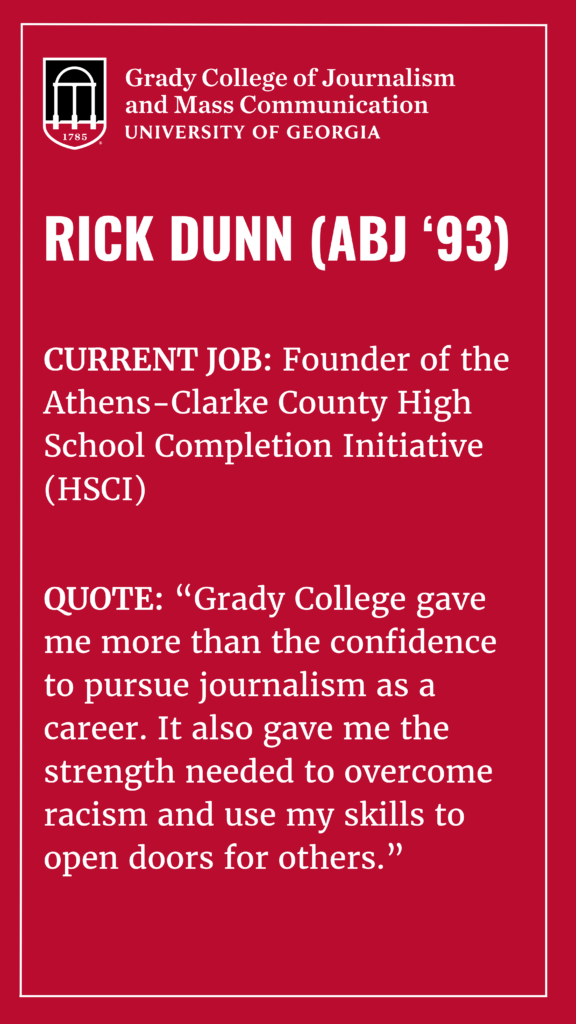
Congratulations to Rick Dunn (ABJ ’93) on being named a 2024 Fellowship inductee.
Dunn is the founder of the Athens-Clarke County High School Completion Initiative (HSCI). The 501 (c)(3) organization empowers youth to overcome their circumstances and grow into positive, productive and prosperous adults. As a hook into the program, youth between the ages of eight and 18 train in the field of broadcast media. They produce “Education Matters,” a teen-led talk show, and MEU Radio Athens, an internet radio station.
For 38 years, Dunn was the host and producer of the Athens radio talk show, “Community Forum.” He is the recipient of the 2022 President’s Fulfilling the Dream Award, presented by UGA to local community members dedicated to contributing to race relations, justice and human rights, and the 2023 Footsteps Award, recognizing those who follow in the footsteps of UGA trailblazers and their legacy of courageously opening doors and creating pathways for others.
A native of Washington, D.C., he and his wife, Mary, have 12 children (three adopted) and 14 grandchildren.
Below is an interview with Dunn.
Grady College: How did your time at Grady College shape where you are today?
Rick Dunn: If it were not for Grady College, I would have transferred from the University of Georgia. When I enrolled at UGA in 1971, there were only 100 Black students on a campus of 22,000. It was an unwelcoming place for a Black person to attend college. The marching band was still the Dixie Red Coat Band. Confederate flags flew proudly. Professors called me “boy” and “ni-gra.” White students urinated under the door of our dorm room. And, the parents of those students had no problem calling us “n- – – – -s.”
Being from Washington, D.C., I had never experienced that level of racism. So, I considered transferring to Howard University, which was in the process of launching a School of Mass Communications. I met with the school’s first dean, Tony Brown, and shared my desire to become one of his students. I have never forgotten what he said to me. “You are at the University of Georgia School of Journalism,” he said. “It is one of best journalism programs in the country. I don’t know what my program will be like. You need to stay at Georgia.”
So I stayed, and that turned out to be one of the best decisions I ever made. Grady College not only showed me I had the skills to be a journalist, but it became my escape from the racism I experienced on other parts of the campus. My instructors interacted with me based on the merits of my talents and not the color of my skin. They pushed me to become the best version of me. Journalism students supported my becoming the first Black photographer at The Red & Black and later the first Black photo editor.
Grady College gave me more than the confidence to pursue journalism as a career. It also gave me the strength needed to overcome racism and use my skills to open doors for others.
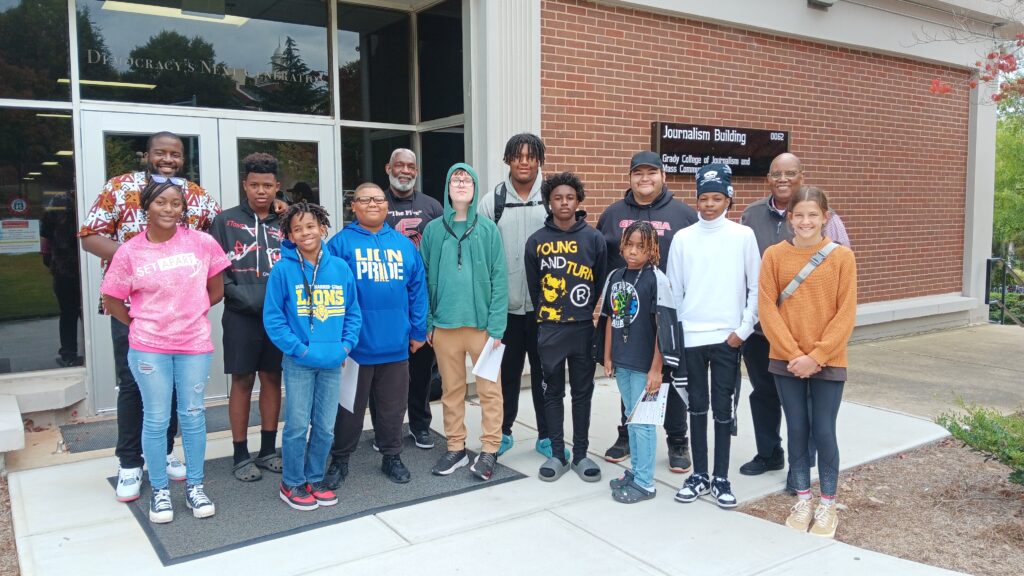
GC: Are the any books or podcasts that you would recommend to students?
RD: “Education Matters” is the podcast, or radio show, that I listen to every week. Obviously there is some bias because that is the show the youth in our program produce and host. But as a fan, I love their innocence. I am impressed with their growth as interviewers. I appreciate their efforts to reveal the facts and let the audience formulate their own opinions. It is a welcomed return to real journalism.
“The Road Less Traveled” by M. Scott Peck — I was looking to become a better life coach to youth. I started studying Nick Saban and discovered he made his players read the book. I figured if “The Road Less Traveled” helped Saban turn athletes into perineal winners, surely it would help me show kids how to win in life.
The book opens with the simplest and most truthful sentence. “Life is difficult.” Peck goes on to write “ … once we accept it — then life is no longer difficult.”
In a world that wants everything quick and easy, stating that life is full of challenges to be met is the most helpful advice one could share with low-income youth. Face the problem. Defeat the problem.
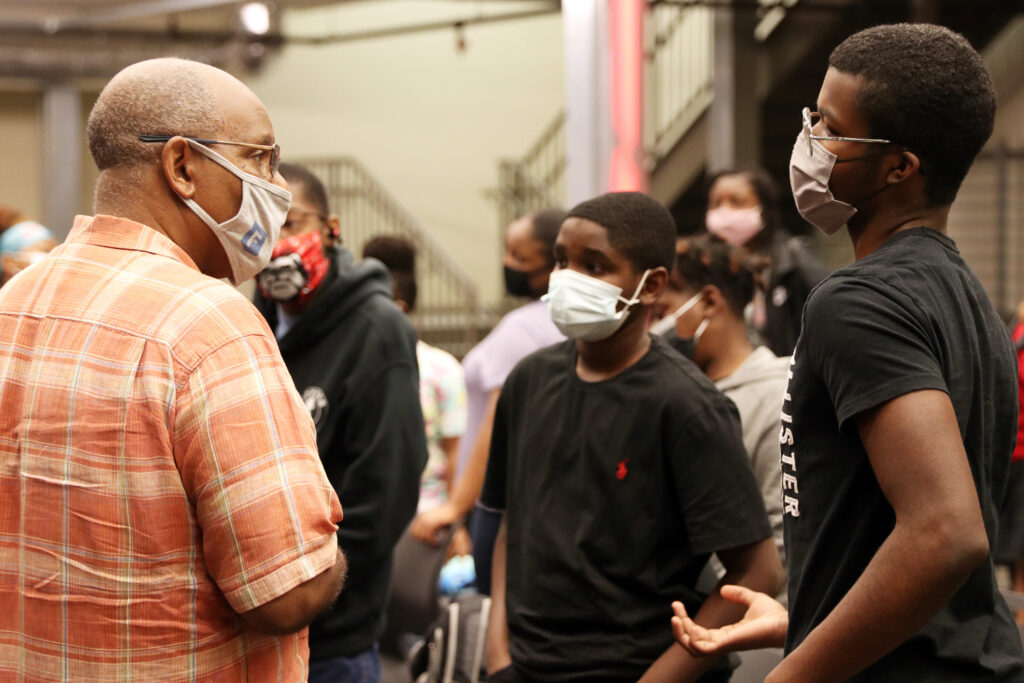
GC: What would you tell your 20-year-old self?
RD: “Trust in the Lord with all your heart and lean not on your own understanding; in all your ways submit to him, and he will make your paths straight.”
At age 20, my immature understanding of life resulted in lots of bad decisions and turns down wrong paths. I knew my life and that of others would have been better if I had followed God.
GC: What does this recognition mean to you?
RD: It is unbelievable that someone thinks I am worthy of the Grady Fellowship. When I look at the careers and huge contributions of people like Charlayne Hunter-Gault, Donald Perry, Ernie Johnson, Jr., Randy Travis, Furman Bisher, Conrad Fink, David Hazinski and Regina Hicks, I wonder who thought I should receive this honor. I am just a community servant who uses journalism to help make life better for marginalized youth. This award says people view my work as far more important than I thought. This award says the work I do, and the community I serve, matters to my college, my alma mater.
GC: What motivates you?
RD: Serving others, especially youth, motivates me. Service is what my two greatest influencers in life — Jesus Christ and Martin Luther King, Jr. — deemed to be the most important. As Dr. King said in his Drum Major Instinct speech, “… he who is greatest among you shall be a servant.” But I do not serve to be called a great person. I serve to help others discover their greatness.
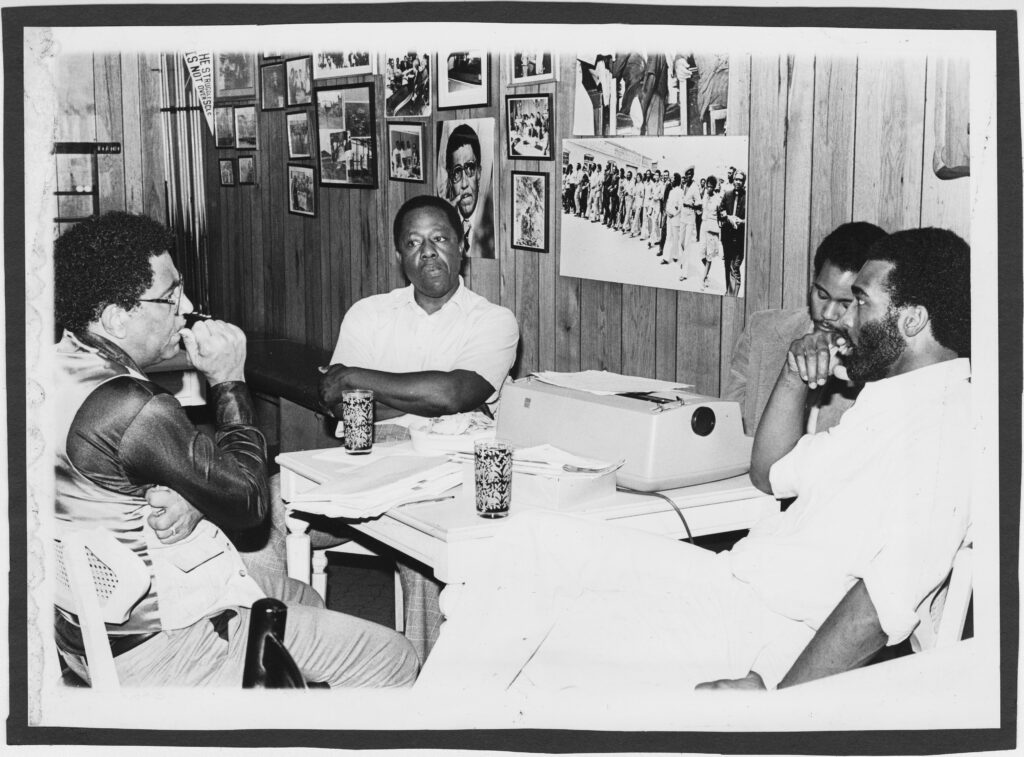
GC: What are the most important skills communicators should master?
RD: The most important skill for a communicator is listening. Talk less and listen more. Listening says you want to learn from others. Listening says you respect them as a person. Listening provides the information needed to tell the story. The second most important skill is putting what you hear into a story that holds your audience and makes them wiser.
GC: What skills and/or values and/or circumstances do you attribute to your success?
RD: I attribute my success to the circumstances of my childhood. It mirrors that of many of the youth I serve — low-income, single-parent household, high-crime neighborhood, and doubting my life would amount to anything worthwhile. During my teen years, I was invited to be a guest on a local television program. It was a life-changing experience. I walked out of that studio no longer a kid who saw failure as his only option, but as a young man who just discovered he could be more than what society’s stereotypes sentenced him to be. I am rewarded every time a kid in our program makes that same discovery.
The Fellows will be inducted and recognized along with the 2024 Alumni Award recipients during the annual Grady Salutes event. This year’s Grady Salutes will be a luncheon on Friday, April 26. Details about sponsorship information and reservations will be coming soon to the Grady Salutes webpage.
Editor: Jackson Schroeder, Jackson.Schroeder@uga.edu